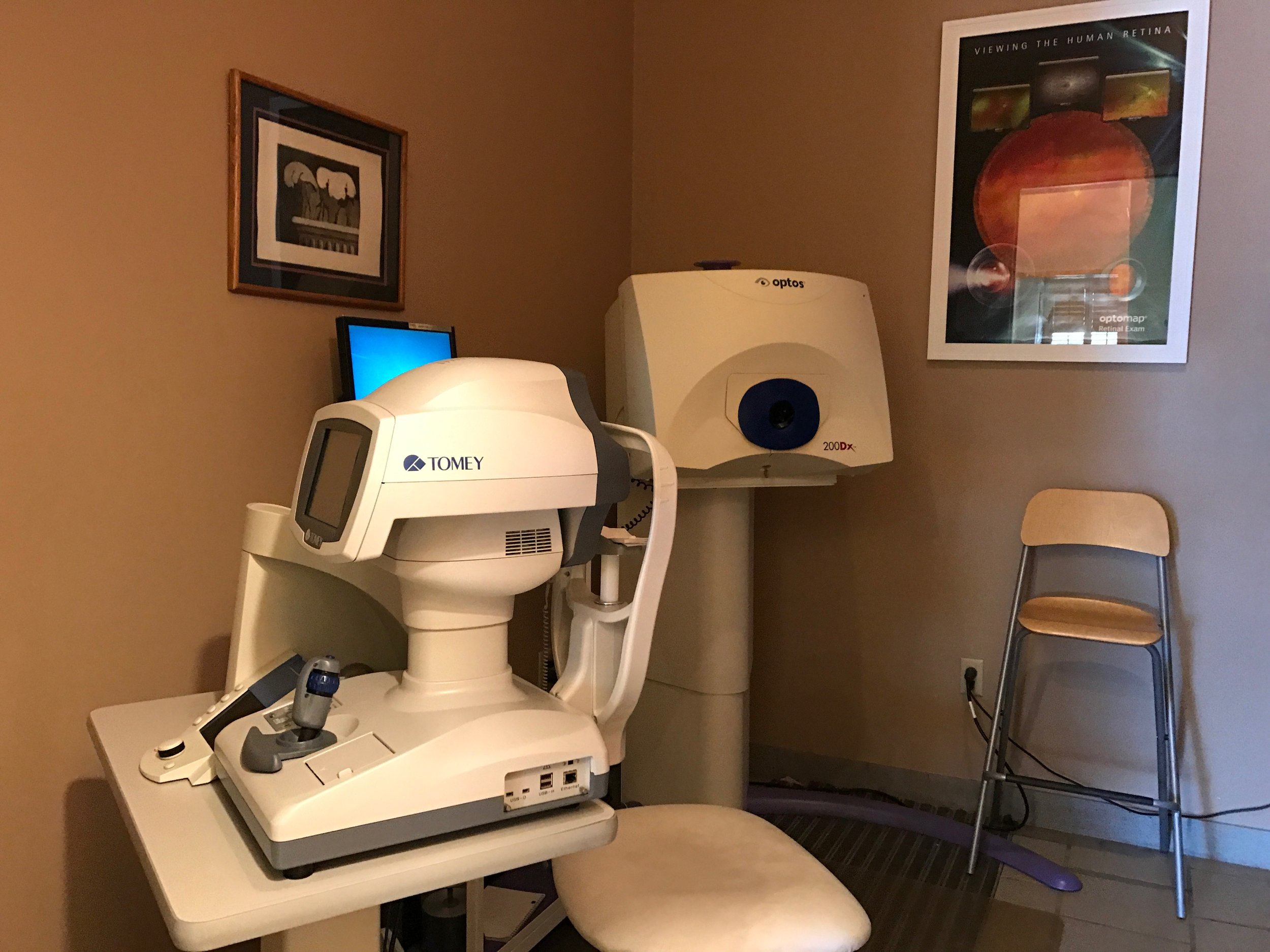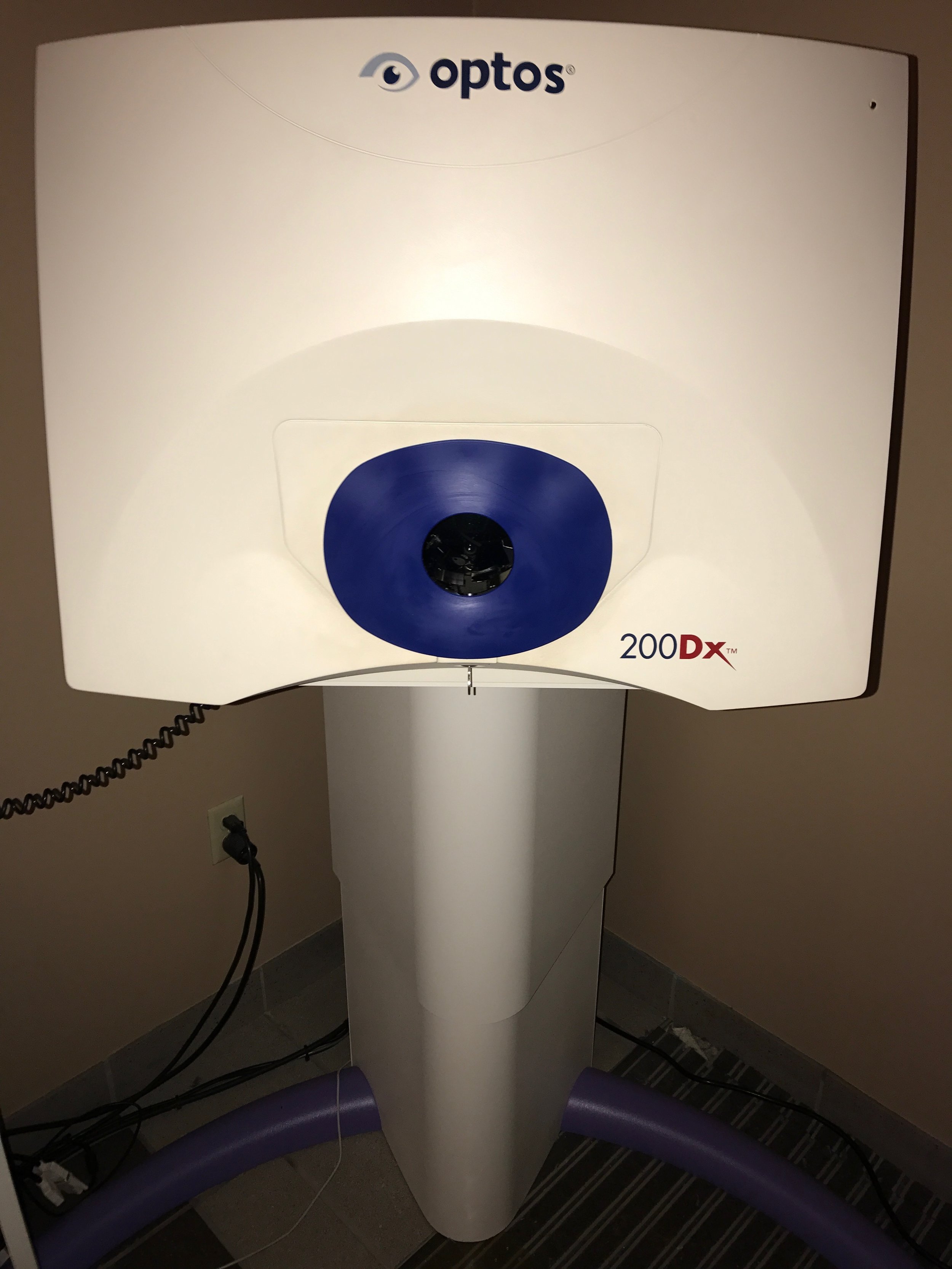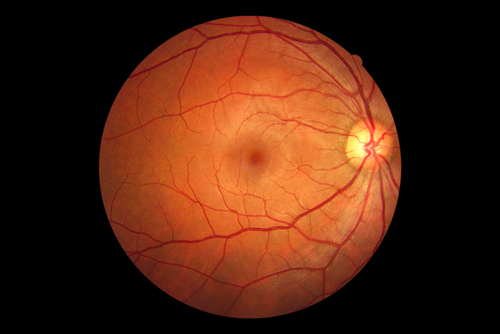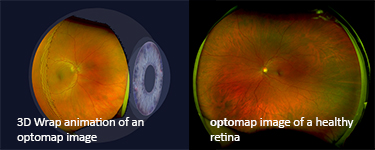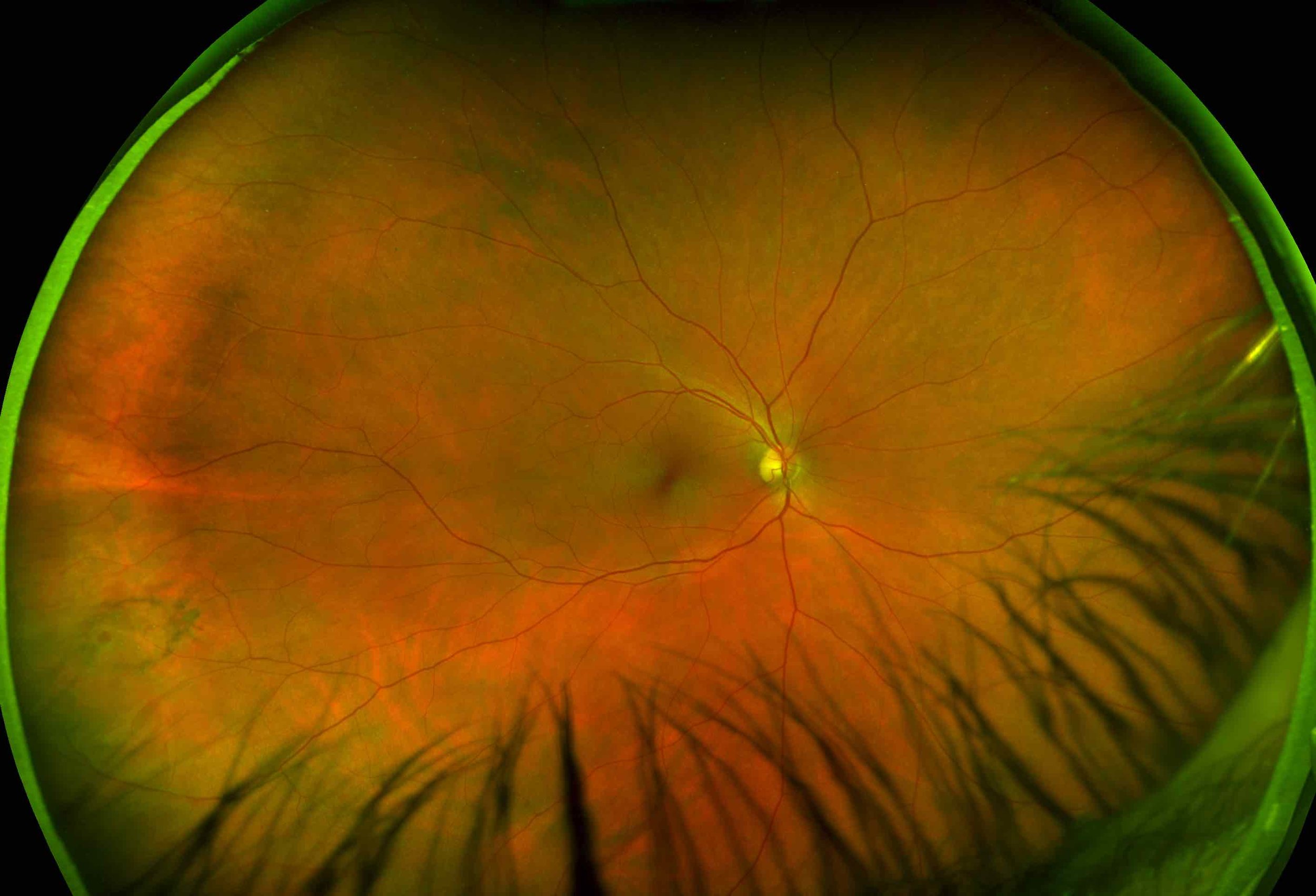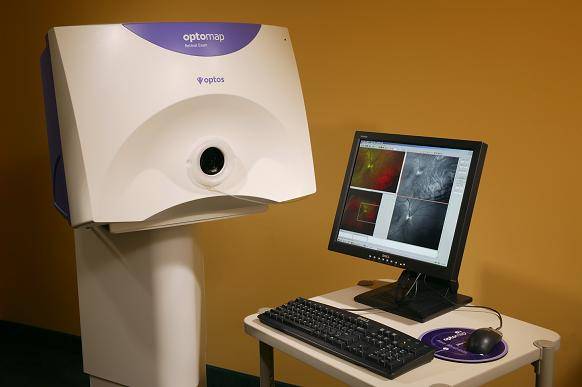What is Retinal Screening?
Optomap Retinal Exam
Dr. Bevil uses the Optomap technology as a valuable tool to examine your health and to help him discern treatment options for his patients. The Optomap is used to test for retinal tears, diabetes, high cholesterol, as well as high blood pressure, headaches, and even cancer. As a bonus, dilating your pupils is a thing of the past with this comprehensive eye exam device. The Optomap’s laser scan shows Dr. Bevil an ultra–wide view of the health of your retina (the very back of the eye). Your Optomap exam is quick and painless, and the test results are instantaneous. Dr. Bevil will be able to examine and go over your results immediately.
Frequently Asked Questions: (Provided by Optomap)
Why is a retinal exam so important?
Some of the first signs of diseases such as stroke, diabetes and even some cancers can be seen in your retina, often before you have other symptoms. An optomap makes it easier for Dr. Bevil to deter man these signs.
Is an optomap safe for children?
Yes. In fact, many vision problems begin in early childhood, so it's important for children to receive quality routine eye care.
What is an optomap?
The optomap is a panoramic digital image of the retina produced by Optos scanning laser technology. It is the only technology that can show a wide 82% view of your retina at one time.
Does it hurt?
No. It is completely comfortable and the scan takes less than a second. You don't have to walk out with those cool stunning shades.
How will optomap benefit me?
The ultra-widefield optomap will help Dr. Bevil detect problems more quickly and easily. Unlike traditional retinal exams, the optomap image can be saved for future comparisons.
How often should I have an optomap?
This is a decision that should be made by your doctor. However, it is generally recommended that you have an optomap each time you have an eye exam.
Are there side effects?
Optomap images are created by non-invasive, low-intensity scanning lasers. No adverse health effects have been reported in over 50 million sessions.

